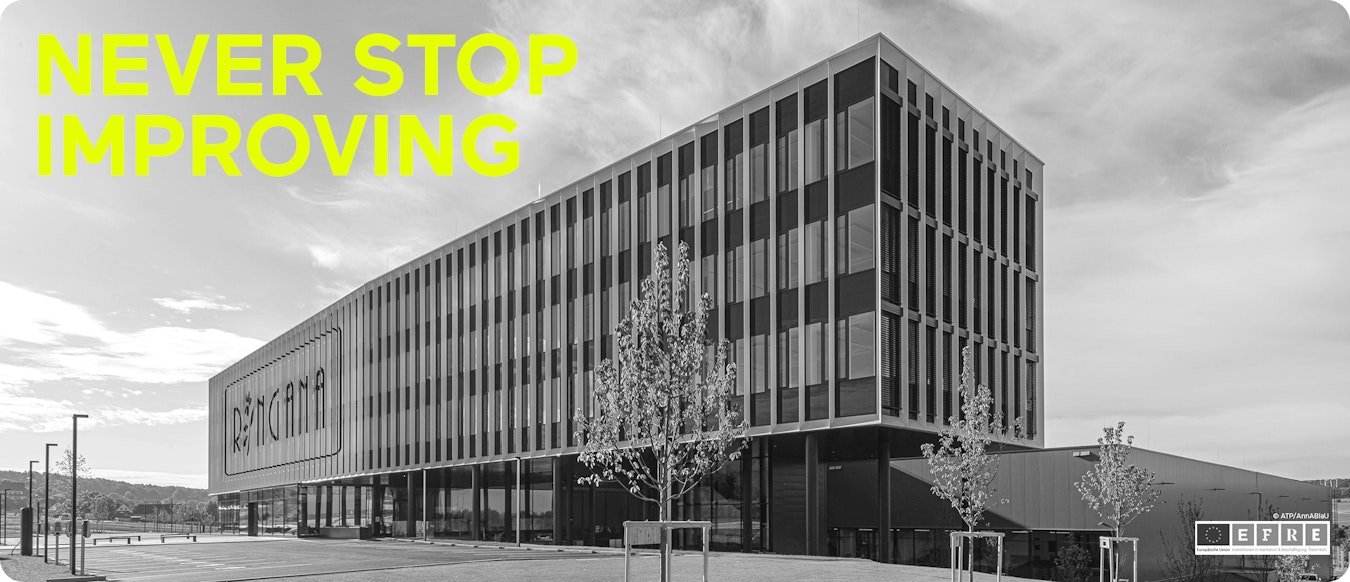527 raw materials, 331 packaging elements, 243 printed products, 36 merchandising items – a total of 1,137 centrally managed items that are supposed to be available at the best price and in keeping with ecological and social criteria, at the right time and in the right quantities. Our supply chain is a complex subject. And the fact that we freshly manufacture our products in small batches several times a month doesn’t make it any easier. However, all of this effort is worthwhile because it ensures the freshness and efficacy of our products. In this blog article, we want to offer you some insights into this complex and hugely important topic.
How sustainable are our supply chains, and how can RINGANA prove it?
When selecting its suppliers, in order to ensure a responsible supply chain RINGANA takes economic, ecological and social factors into account. A central tool for doing this is its supplier questionnaire, which enquires into a number of questions including product and company-related certifications showing that ecological, social and qualitative standards are being met. All of these parameters are included when evaluating suppliers.
With the exception of raw materials, Europe is our preferred supply region. That’s because our products contain innovative and highly effective plant-derived substances, for which the supply chain is global and highly complex. Europe is the core sourcing region for all other goods we buy. 
How should I picture the RINGANA supply chain? Does everything come from just around the corner?
At RINGANA we try to obtain only the best, high-end raw materials with high concentrations of active ingredients and highly antioxidant ingredients. These then need to be processed quickly in order to preserve their freshness. We want our containers and packaging to be as sustainable and eco-friendly as possible. As a result, we pay particular attention to specific certifications with regard to these products: for example, GOTS for our hand towels, PCR for our plastics and glass, and Cradle-to-Cradle for our printed material. Since we always strive to use the best and most effective raw materials for our products, we have a supply chain that extends across the globe. Nonetheless, we try not only to create jobs in our local region, but to purchase here as well, wherever possible.
How does the company’s approach to sustainability affect its purchasing strategy?
Although our purchasing is divided into groups of goods, sustainability plays a role for all of these groups. In other words, it’s a constant that runs not only through the supply chain, but through the entire purchasing process as well. From our reuse concept to eco standards such as GOTS, the Austrian Ecolabel, the EU Ecolabel or the Natural Cosmetic Standard in product development, the Cradle-to-Cradle Standard for printed material, to the use of recycled material, and our focus on the recyclability of packaging, RINGANA tries to design, manufacture and package its products in as eco-friendly a way as possible – and that starts with procurement.
How difficult is it to ensure transparency in such a complex supply chain?
Very difficult! The procurement of all items in the desired quality, at the best price, and at the time required is very challenging. But that’s something we can cope with. When it comes to containers, printed material and merchandising items, we’re very familiar with the complexity. It is, however, more difficult with regard to the raw materials – particularly those that are plant-derived. Individual plants may be grown in several different countries to avoid failed harvests caused, say, by heatwaves.
Some suppliers cite trade secrets, and simply don’t want to reveal the origins of rare ingredients so that they can maintain their competitive edge. However, growing pressure on the global market – brought to bear by legislation, businesses that operate sustainably and consumers – is noticeably leading to increasingly transparent supply chains and more detailed information – a huge help to us and any other business that is committed to sustainability.

Our pledge to operate fairly and in a way that conserves resources, respecting both nature and people, is enshrined in our creed – the RINGANA Values.



 Zur Übersicht
Zur Übersicht